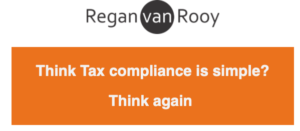| The following explanatory note is provided to assist the media in reporting this case and is not binding on the Constitutional Court or any member of the Court.
Today the Constitutional Court handed down judgment in a direct application to declare invalid a proclamation of the President bringing certain sections of the National Health Act into operation.
On 21 March 2014 the President signed a proclamation which brought certain sections of the National Health Act into force as of 1 April 2014. These sections collectively criminalised the provision of health services without a properly issued “certificate of need”. The Act authorises the Minister of Health to prescribe regulations regarding applications for, and the granting of, these certificates. However, the required regulations are not yet in operation and, therefore, no health service providers can obtain a certificate of need. The consequence created by this is that practising health service providers in South Africa are engaging in criminal conduct. The President and other members of the Cabinet and Presidency maintained that the decision to bring the sections into operation was made in good faith, but in error, and was therefore irrational in law. They sought to have the proclamation set aside. The South African Dental Association and the Hospital Association of South Africa are the respondents in this matter but supported the relief sought.
In a unanimous judgment, this Court held that it is in the interests of justice to grant the President direct access to the Court in order to remedy the premature issuing of the proclamation. The error needed to be swiftly addressed and the legislative process required to rectify the problem would have been lengthy and burdensome.
The Court found that the issuing of the proclamation had led to an untenable and unintended situation which could inhibit or discourage health care practitioners from providing essential services, at the risk of criminal sanctions for doing so. The President is unable to withdraw the proclamation because the date for its commencement has long since passed and there is no mechanism contained in the Act itself to remedy the situation. Therefore, the decision was properly before the Court for review.
The applicable standard for review of a President’s decision is that of rationality. This Court had to determine whether the President’s decision was rationally related to the purpose for which the power was given. This is an objective enquiry which does not take into account the President’s good intentions. The purpose of the President’s power to bring portions of the Act into operation is to achieve an orderly and expeditious implementation of a national regulatory scheme for healthcare. The Court held that the decision to issue the proclamation before there was any mechanism in place to address applications for certificates of need was not rationally connected to this purpose (or any other governmental objective). The President’s decision was irrational and therefore invalid. Accordingly, the proclamation was set aside.
|






